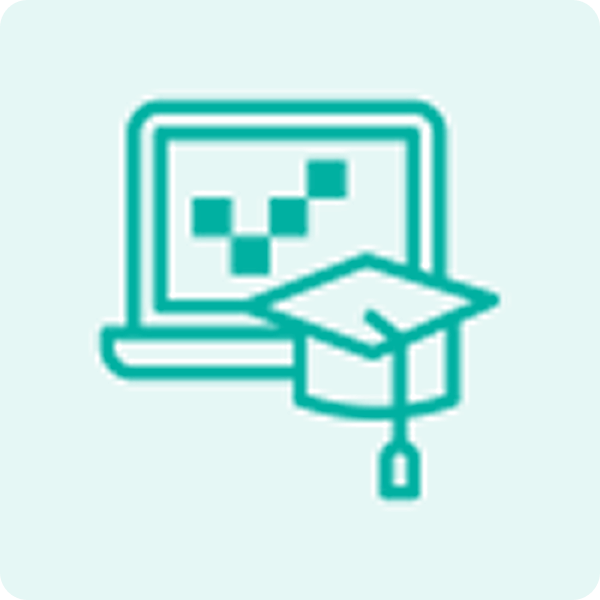AI4CI - Integration of Virtual and Augmented Reality Technologies in Connected Industries
The "Integration of Virtual and Augmented Reality Technologies in Connected Industries" course is part of the European AI4CI Master Artificial Intelligence for Connected Industries. The course offers a comprehensive exploration of the transformative potential of immersive technologies in various industrial sectors. Participants will gain foundational knowledge of Virtual Reality (VR) and Augmented Reality (AR) and examine real-world applications across manufacturing, logistics, and healthcare.
The course emphasizes the integration of digital twins and immersive Human-Machine Interfaces (HMIs), equipping students with the skills to design user-friendly interfaces and address challenges in implementing these technologies. With a balanced evaluation approach comprising quizzes and a project, this course is ideal for individuals with a basic understanding of VR/AR and programming fundamentals, aiming to enhance their expertise in connected industries.
Background of the Master AI4CI
The AI4CI master is a European master opened at the universities Conservatoire National des Arts et Métiers (CNAM), Paris, France; Cnam Grand Est (CGE), Mulhouse, France; and National Technical University of Ukraine (NTUU), Kiev, Ukraine; University of Ulm, Germany; University Babeș-Bolyai (UBB), Cluj-Napoca, Romania, Avignon University, France and Polytechnic University of Catalonia (UPC), Barcelona, Spain.
The master teachers include world-class academics from our European partners and industry experts.
Pedagogical Objectives
Learn about the latest hardware solutions for virtual, augmented and mixed reality, and see novel application of immersive technologies in industrial environments. In particular, the course will show how digital twins intertwine with immersive technologies, explaining the advantages of immersive Human-Machine-Interfaces (HMIs) over traditional HMIs, and helping to identify situations where to apply immersive technologies to improve use cases in the industrial plant. Virtual simulators for education and training will also be presented.
Topics
- Introduction to Virtual and Augmented Reality Technologies. Understanding the fundamentals of Virtual Reality (VR), Augmented Reality (AR) and Mixed Reality (XR). Hardware alternatives and their advantages and disadvantages.
- Applications of VR and AR in Connected Industries. Exploring use cases in manufacturing, logistics, healthcare, and other industries. Case studies of successful VR and AR implementations in connected industries.
- Identifying potential challenges and solutions in real-world applications. Technical Foundations of VR and AR. Programming for VR and AR development: Unity, Unreal Engine.
- Usability considerations in connected industries. Different types of interactions in VR and AR: Controllers, hand-tracking, and voice commands. Design principles for creating immersive and user-friendly interfaces with the particulars of VR and AR. Hands-on exercises in designing interfaces for specific industrial applications.
- Integration of VR and AR applications with IoT devices and sensors in connected industries. Communication protocols between VR and AR applications and simulation servers or IoT devices: API Rest, Web Sockets, MQTT, OPC UA.
- Fundamentals of digital twins and their levels. Integration and simulation of digital twins inside VR and AR visualisations. Alternating between digital twin simulation and real data feeds inside the same virtual experience.
Prerequisites
Basic Knowledge of Virtual and Augmented Reality: A basic knowledge of the principles and concepts behind virtual and augmented reality may be required.
Programming Fundamentals: Since technology integration often involves software development, programming skills in relevant languages such as C# or C++, as well as understanding the concepts behind object-oriented programming, may be required.
Knowledge of Connectivity Technologies: It may be beneficial to have knowledge of communication technologies like Web Sockets or MQTT, commonly used to connect to IoT devices and digital twins.
Target audience
This course is designed for industrial automation professionals who want to learn about predictive maintenance for industrial robots. However, junior professionals or students with basic knowledge on industrial robots can also apply.
Dates
9-13 June 2025, duration 25.5h.
Mon, Tue, Wed, Fri: 9:00-12:00, 13:00-16:00 CEST
Thu: 13:30-15:00 CEST
This is followed by an evaluation assignment (self-paced, approx. 45h).
Modalities
Hybrid: either remotely online or onsite at ITCL, free of choice.
Registration fees
Industry professionals: EUR 800
University students: EUR 650
Certification:
ITCL will issue a certificate indicating the international master’s degree AI4CI - European Master Artificial Intelligence for Connected Industries.



